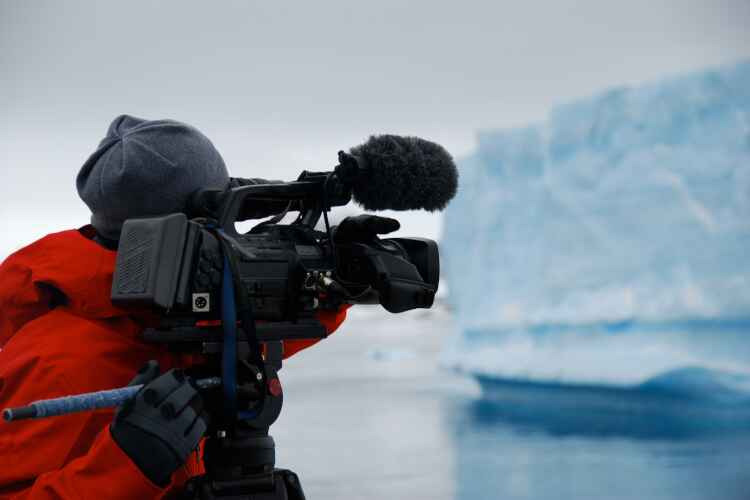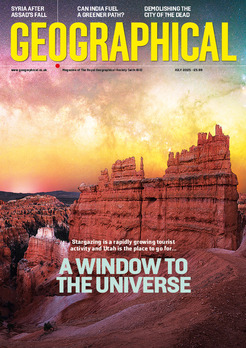
Wildlife filmmakers and content creators debate the future of natural world storytelling at Wildscreen Festival 2022
‘I think we are failing in television, I don’t see how you can look at the current output and think differently.’
Mandi Stark, a wildlife filmmaker and creator of the podcast Natural Wanders – the Plodcast, is speaking at the biannual Wildscreen Festival during a session called Podcasting for Change. ‘I love wildlife filmmaking and natural history television, but it’s not enough to put beautiful images on screen and have accompanying words saying that unless we do something, all this will be lost.’
She’s not alone in thinking that other storytelling formats are surpassing filmmaking when it comes to reporting on climate change and biodiversity loss. Filmmaker-turned-podcaster Tom Mustill believes that podcasts have a powerful ability to connect to an audience in a way that film and television cannot. Part of this, he says, is the lack of authenticity in storytelling made for screens. Unlike podcasters, TV and film presenters read from a script that has been written for them by a team, while guest experts are coached in what to say and how to say it. ‘A podcast feels more real to me,’ he says, ‘it’s not about deciding in advance what your audience needs to hear, or what you need to extract from your guests.’
‘We don’t make natural history telly quite as authentically anymore,’ agrees TV presenter and paleoanthropologist Ella Al-Shamahi. Changing the current business model could drive more innovative storytelling. The need to secure funding, and persuade sponsors with a pre-agreed angle or agenda, stifles creative curiosity and prevents filmmakers exploring the full story they report on. At a time of growing political polarisation, both in the UK and worldwide, filmmakers may even need to modify their message for different audiences. ‘We are communicating to the converted very well,’ says Al-Shamahi. ‘I am absolutely convinced that we are not communicating to the unconverted very well at all.’ She points to what she describes as terrifying viewing figures as proof.
‘Scientists haven’t convinced the vast majority of us that climate change must be taken seriously,’ says shark researcher and TV presenter Gibbs Kuguru, speaking in a session on science communication in a post-truth era. One reason for this, he says, is that the subject is simply too big. ‘We get lost in the facts.’ There’s a collective agreement among the speakers that filmmakers should inspire, not instruct, and that emotive stories are the best way to engage and connect with an audience. ‘I’ve stopped using facts because it doesn’t work,’ says Kuguru. ‘Facts don’t create action.’
Since climate change is an ever-evolving truth, storytelling may be better suited to a format that doesn’t spend a year in production – after which it’s already out of date. Many of the new voices in environmental storytelling are already opting for alternatives to film and TV, including social media, fashion and video games, to reach new audiences.
Wildscreen Festival is a leading international wildlife film and TV industry event that celebrated its 40th edition this month with a focus on ‘the future of natural world storytelling for a better planet’. Featuring a new hybrid format, the festival took place at venues in Bristol and virtually between 10 and 15 October. Headline speakers included James Cameron, Darren Aronofsky, Christiana Figueres, Chief Dada, Imogen Heap and Wildscreen’s patron, Sir David Attenborough.




